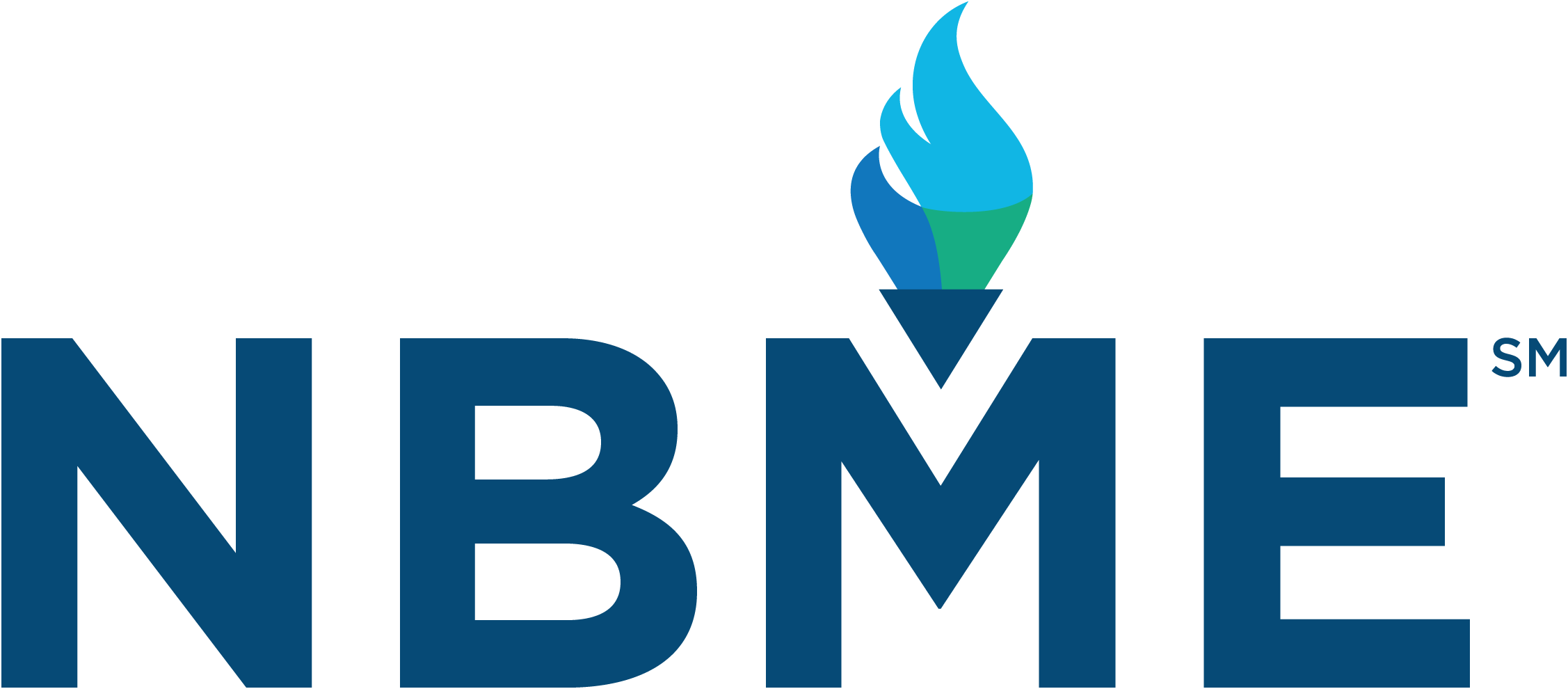About the Residency ExplorerTM Tool
The Residency Explorer tool empowers medical students and applicants to U.S. residency programs to explore programs in their specialty(ies) of interest. Users can explore programs’ interview invitation data for the prior cycle and program characteristics and offerings.
The Residency Explorer tool is the only resource with original, source-verified data from reputable organizations involved in the transition to residency.
The Residency Explorer tool delivers insights and information based on:
- Residency applicant data and interview data from AAMC
- Program positions offered and filled data from NRMP
- USMLE data from the USMLE Program
- COMLEX-USA data from the NBOME
- Residency program directory information from ACGME
- Program characteristics from the National GME Census Survey, jointly administered by the AAMC and AMA.
Purpose
The purpose of the Residency Explorer tool is to empower learners to explore and identify residency programs where they are a competitive candidate and that align with their career interests and personal needs.
Disclaimer
The Residency Explorer tool does not tell you where to apply or predict where you may be invited to interview. It is intended to help you explore and research programs and develop a list of programs for further investigation. Please review the Residency Explorer guidance resources on appropriate data interpretation and use. We also encourage you to consult with a trusted advisor or mentor in the residency application process.
The Residency Explorer tool uses the most recent data available from the reputable organizations involved in the transition to residency. We encourage you to also seek out program information directly from the program’s website.









Residency ExplorerTM Data Sources
The Residency Explorer tool displays the most recent data available from collaborating organizations and sources, including the AAMC, ACGME, NBME/FSMB, NBOME, the National GME Census Survey, and NRMP. Additional data updates from the ACGME and the National GME Census Survey will be made in the winter of 2026. Data displayed in the Residency Explorer tool is limited to the previous cycle only and may be based on small samples, which may not generalize to future cycles.
| Data | How Data is used in Residency Explorer | Source | Timing of Data Collection | Data Coverage |
|---|---|---|---|---|
| Applicants who Applied | Applicant pool composition | AAMC: MyERAS applications submitted by applicants | 2025 cycle | 46 specialties1 |
| Applicants who were Invited to Interview | Interview invitation rates Interview invitee pool composition |
AAMC: MyERAS Application and Thalamus | 2025 cycle | 41 specialties2 |
| USMLE Step 1 and Step 2 CK Exams | Applicant pool composition Interview invitee pool composition Interview invitation rates License exam score information |
NBME | As of 2025 cycle |
Step 1 P/F reported by: 99.3% MD applicants 46.9% DO applicants 97.6% US IMG applicants 98.9% Non-US IMG applicants Step 2 CK scores reported by: 98.6% MD applicants 55.3% DO applicants 95.2% US IMG applicants 98.1% Non-US IMG applicants |
| COMLEX-USA Level 1 and Level 2 CE Exams | Applicant pool composition Interview invitee pool composition Interview invitation rates License exam score information |
NBOME | As of 2025 cycle |
Level 1 P/F reported by: 99.5% of DO applicants Level 2 CE scores reported by: 98.9% of DO applicants |
| Positions Offered and Filled | Match outcomes | NRMP: Main Residency Match | 2025 cycle | 45 specialties3 |
| Program Information (e.g., accreditation, contact info, residents on duty) | General Program Information | ACGME: Accreditation Data System (ADS) updates by programs and institutions | As of 2025 | 100% of programs |
| Program Characteristics and Offerings (e.g., educational offerings, employment benefits) 4 | How My Profile Selections Align with the Program Application Process and Eligibility | AAMC, AMA: National GME Census completed by programs | As of the 2025 National GME Census Survey |
92% updated in 2025
<1% did not yet participate as new programs |
| Resident Characteristics (e.g., demographics, career plans) | Resident Characteristics | AAMC, AMA: National GME Census completed by programs | As of the 2024 National GME Census Survey |
93% updated in 2024
<3% did not yet participate as new programs |
1 Applicant pool composition data are presented for programs who received at least 10 applicants to their program via the ERAS application in the prior cycle. These data are presented for 75-100% of programs in 39 specialties, 50-74% of programs in 4 specialties, and less than 50% of programs for 3 specialties.
2 Interview invitation data are presented for programs who invited to interview at least 10 applicants via Thalamus in the prior cycle. Interview invitation data are presented for 75-100% of programs in 21 specialties, 50-74% of programs in 10 specialties, and less than 50% of programs in 7 specialties.
3 Number of positions offered and filled are presented for programs who participated in the NRMP Main Residency Match in the prior cycle. These data are presented for 80-100% of programs in 36 specialties, 50-79% of programs in 7 specialties, and less than 50% of programs in 2 specialties.
4 Employment compensation and benefits are presented for programs who otherwise make the data publicly available.
As a program staff member, can my program update its data in the Residency Explorer tool?
No, data updates are managed through our trusted source organizations. If you believe there’s an error, reach out to us, and we’ll guide you on how to address it through the correct source.
Residency ExplorerTM FAQs
-
How should I use Residency Explorer data?
The Residency Explorer tool does not advise you where to apply or predict where you may get an interview invitation. It is intended to help you develop a list of programs for further investigation or application. Review Residency Explorer guidance resources on appropriate data interpretation and use. Refer to programs’ websites for more detailed information about educational aims, unique features, patient populations, positions on diversity and inclusion, and other important attributes. We encourage you to consult with a trusted advisor or mentor as you research programs. -
Why have these organizations collaborated to create this tool?
The AAMC, AACOM, ACGME, AMA, ECFMG, FSMB, NBME, NBOME, and NRMP embrace the belief that our shared constituents—students, advisors, deans, program directors, and others—will benefit if we work together to develop a single resource that helps students understand historical outcomes, assess their candidacy, and make informed decisions. -
How many specialties can I explore at one time?
You can explore one specialty at a time from over 40 available specialties. To switch specialties, click on the specialty name at the top right-hand side of the page. -
Is the Residency Explorer tool mobile compatible?
The Residency Explorer tool is best experienced on a desktop or laptop. While some elements may work on a phone or tablet, the tool is not fully optimized for mobile use at this time. -
Why do some programs not display applicant data?
Data may not be displayed for different reasons:-
Program did not participate in a service: Application data are available for programs that used ERAS. Interview invitation data are available for programs that used Thalamus. Positions offered and filled are available for programs that participated in the NRMP Main Residency Match.
-
Protect privacy and confidentiality: Interview invitation data are displayed for programs that invited at least 10 applicants to interview via Thalamus. Current resident data are displayed for programs with at least 10 current residents. USMLE and COMLEX-USA score data are displayed for programs that invited to interview at least 30 applicants who submitted exam scores to the program.
-
Display data only for programs that had access to it: If a program did not participate in program signaling or did not access geographic preferences data in the prior cycle, interview invitation data, including bar charts and pie charts, are not displayed because these data were not considered to determine interview invitations.
-
Specialty or program is changing their approach in the future: If the program is in a specialty that changed their approach to signaling or geographic preferences for the upcoming cycle, data are not displayed because it may misrepresent how these data may be used to determine interview invitations in the next cycle. To view 2025 cycle program signaling data and geographic preferences for these specialties, please visit the ERAS Statistics webpage. For all programs, we encourage you to consult with the program's website for additional information on program characteristics, application requirements, and resident information.
-
-
Why isn’t comparative data shown for applicants who’ve previously matched to a program shown?
The Residency Explorer tool uses historical data. Due to the recent changes in the MyERAS application, the tool only presents data from the single, most recent cycle (i.e., 2025 cycle) making sample sizes for the NRMP Main Residency Match data at the program level too small to display comparative data for most programs. As a result, Residency Explorer leadership decided not to display NRMP Main Residency Match data to ensure comparable data across programs were shown and to protect the privacy and confidentiality of matched applicants.For all programs, we encourage you to consult with the program’s website for additional information on program characteristics, application requirements, and resident information.
-
What if I am unfamiliar with some of the program characteristics and offerings in the My Profile section?
Depending on where you are in your journey to residency, some program characteristics and offerings may be unfamiliar to you. We encourage you to explore program characteristics and offerings in more detail on programs’ websites and to consult with a trusted advisor or mentor as you research programs. -
Why are only some application characteristics in the Residency Explorer tool and other application content (e.g., experiences, publications) not included?
Residency Explorer application characteristics were selected based on research that explored with medical students, medical school advisors, residents, and program directors which application characteristics are of greatest interest and importance to applicants and based on which application characteristics predict interview invitation. Additional application characteristics may be added to the Residency Explorer tool in the future. -
Why can’t I download data from the Residency Explorer tool anymore?
As of October 15th, 2025, the AAMC has removed the data download feature from Residency Explorer™ tool. The Residency Explorer Tool continues to provide all of the same information within the tool itself, presented with the necessary context and interpretation guidance to help applicants use the data appropriately. Because the tool is designed for interactive exploration—not for external analysis—data are now available only within the platform.If you previously used the download feature, you can still view and compare programs directly in the tool.
Residency ExplorerTM Help
If you have questions about your experience or require support while using Residency Explorer, please click the “Contact Support” button below to be directed to the support contact form. Our support team will respond to your inquiry within 24-48 business hours.
Residency Explorer support hours are 9:00 am – 5:00 pm ET, Monday – Friday (excluding U.S. federal holidays).